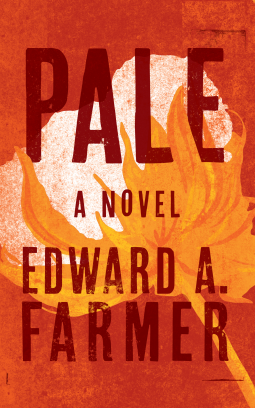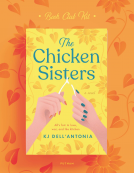
Pale
A Novel
by Edward Farmer
This title was previously available on NetGalley and is now archived.
Send NetGalley books directly to your Kindle or Kindle app
1
To read on a Kindle or Kindle app, please add kindle@netgalley.com as an approved email address to receive files in your Amazon account. Click here for step-by-step instructions.
2
Also find your Kindle email address within your Amazon account, and enter it here.
Pub Date May 19 2020 | Archive Date Jul 23 2020
Talking about this book? Use #Pale #NetGalley. More hashtag tips!
Description
*Included in Deep South Magazine's Summer Reading List 2020*
“Some things just don’t keep well inside this house …”
The summer of 1966 burned hot across America but nowhere hotter than the cotton fields of Mississippi. Finding herself in a precarious position as a black woman living alone, Bernice accepts her brother Floyd’s invitation to join him as a servant for a white family and she enters the web of hostility and deception that is the Kern plantation household.
The secrets of the house are plentiful yet the silence that has encompassed it for so many years suddenly breaks with the arrival of the harvest and the appearance of Jesse and Fletcher to the plantation as cotton pickers. These two brothers, the sons of the house servant Silva, awaken a vengeful seed within the Missus of the house as she plots to punish not only her husband but Silva’s family as well. When the Missus starts flirting with Jesse, she sets into motion a dangerous game that could get Jesse killed and destroy the lives of the rest of the servants.
Bernice walks the fine line between emissary and accomplice, as she tries her best to draw secrets from the Missus’s heart, while using their closeness to protect the lives of the people around her. Once the Missus’s plans are complete, families will be severed, loyalties will be shattered, and no one will come out unscathed.
With a dazzling voice and rich emotional tension, Pale explores the ties that bind and how quickly humanity can fade and return us to primal ways.
A Note From the Publisher
Advance Praise
"The plot and writing are evocative of the work of the late Ernest Gaines; it’s a story simply and directly told, and by that simplicity and directness it exposes familial cruelties and kindnesses in equal measure. This is a promising beginning for a writer who...continues a rich and lyrical narrative tradition. A beautiful first novel."
-Library Journal (Starred Review)
“[Farmer] excels at atmosphere, using the oppressive heat of summer, the heaviness of the night sky, the sound of the wind through the cotton, and the isolation of the plantation to deepen the feeling of melancholy…Recommended for readers who like quiet, character-driven novels.”
-Historical Novels Review
"More than once I had to remind myself to take a deep breath while reading Pale. It's a slow walk through a poetic dream, or rather an inescapable nightmare. Edward Farmer deftly portrays characters that are trapped by choices other people made long ago. A beautiful exploration of the tension between choices and circumstances. The evil of intergenerational racism is revealed by the preference to live in a quicksand of hatred, to choose slow vengeance over breaking free."
-Laila Ibrahim, bestselling author of Yellow Crocus
“Edward A. Farmer's novel, Pale, takes readers on a twisting, turning journey of unexpected passions, forbidden love, and practiced cruelty. His sumptuous prose creates an operatic vision of life on a cotton plantation in 1960s Mississippi, a world on the cusp of great change that many of its characters resist with all their power. Farmer's debut marks the emergence of an exciting new voice in American fiction."
-May-lee Chai, author of Useful Phrases for Immigrants: Stories and Dragon Chica.
“Edward A. Farmer’s Pale is a novel that surges full force into the power of language. The music of the words builds and builds, rendering tension as thick as the humid Mississippi air. The characters overflow with this music, driven by intense passions, often to the point of madness. They try to make melody of circumstance and loss, but instead find only dissonance. Farmer orchestrates this story with the genius of a maestro, only releasing the reader through a deft and lovely resolution in the novel’s final pages. A striking debut by an author to watch.”
-Zach Powers, author of First Cosmic Velocity and Gravity Changes
“Edward Farmer’s powerful debut, Pale, lures you in with its atmospheric prose, grabbing hold gently and then slowly tightening its emotional grip with each page. His main character, Bernice, must navigate Mississippi plantation life circa 1966 with its deeply embedded racism and well-established patriarchy, as well as the complex tensions between both Mr. and Mrs. Kerns and their servants. It’s a beautifully wrought novel, with each character sensitively drawn, exposing the lasting effects of trauma. Farmer is a writer to watch!”
-John Copenhaver, author of the Macavity Award–winning Dodging and Burning
“Farmer’s debut captures the delicate and dangerous lose-lose reality of a person in Bernice’s position…Farmer opens with cotton imagery and returns to it throughout, disallowing any visions of beautiful, puffy whiteness…The story’s rewards and Bernice’s experience are important.”
-Booklist
Marketing Plan
Major prepublication buzz, outreach, and appearances
National review attention / debut author features
Digital/print advertising campaign
Literary fiction outreach and programming
Major bookseller merchandising / co-op
Bookstore and library events
Creative social media and book trailer campaign
Featured title/author at library, bookseller, and consumer trade shows and conferences
Available Editions
| EDITION | Hardcover |
| ISBN | 9781982673864 |
| PRICE | $26.99 (USD) |
Average rating from 20 members
Featured Reviews
 Prism O, Educator
Prism O, Educator
This is an engaging debut novel set in the summer of 1966 Mississippi. Bernice takes a job with a white family on the advice of her brother. The house is not a happy one, and the “Missus” is a petty, vindictive woman out for revenge on most anyone who looks at her wrong. Secrets, lies and betrayal run rampant within and outside of the house, between men and women who should by all accounts get along with one another. There was a constant tension running through the characters while reading, and I was expecting something very bad to happen. The bad was a series of minor events that became major ones. I have some difficulty describing the story; there were many characters, a lot of racism and winding threads that sometimes made it hard to follow. Nothing horrible happened, it’s more a cautionary tale of who do you trust, and to trust no one. There was so much back-stabbing and treachery it was a little depressing, albeit a fascinating look at human dynamics, and how different people thrown together under similar circumstances react and overreact. I was a bit confused by the timeline and setting; I thought this was a more likely scenario 10 years earlier or more. However, I grew up in GA, not MS. Overall it was an intriguing read, and I look forward to reading more from this author. Thank you to the author, publisher and Netgalley for the ARC in exchange for my honest opinion.
 Reviewer 610317
Reviewer 610317
A web of secrets and lies bedevil a cotton plantation in South Carolina in the 1960s. Complex relationships among the owner and his wife and their servants create constant underlying tension. Narrated by Bernice, one of the servants, this debut novel does a decent job of tying this all together. The character of the “Missus” was somewhat overdrawn. On the other hand, Fletcher, a tormented biracial character, was very well drawn. 3.5 rounded up to 4.
Pale is a sad story about a web of secrets and lies that torment a cotton plantation in South Carolina in the 1960s.
This is an interesting portrayal of life in the south and the terribly complex relationships between a white plantation owner and his vindictive wife, and their black servants. I like this author’s writing style. The subject and the storytelling style fit perfectly together. I would like to thank Netgalley, the publisher and the author for providing me with an advance reader copy in exchange for my honest and unbiased opinion of this book.
#Pale #NetGalley
 Denice L, Reviewer
Denice L, Reviewer
An engrossing story that builds slowly as it pulls you into the middle of a class/ race battle lived in a short period of time in Mississippi. Edward Farmer writes as if he lived the story. He introduces us to a cross section of southern characters just trying to survive in a climate when times were changing very slowly and not always in a good way. As the wife of the owner of a cotton plantation sets in motion a series of events meant to ease her pride and soothe her wounds, the tension builds slowly until the explosion blows apart the expectations of every member of this cast. DO NOT try to read this book a little bit at a time. Once you start, you will not want to stop.
Edward Farmer's engrossing debut, Pale, begins in 1966 in the burning heat of Mississippi, when Bernice, whose husband left with all their savings and didn't return, accepts her brothers invitation to join him in working on a cotton plantation.
She is slowly immersed into a household full of secrets, deception, revenge, and downright cruelty, which revolves around two young brothers who come to work on the plantation. One becomes a pawn to enact revenge, and the other is mistreated, lied to, and trapped by the choices of others.
As the story slowly unfolds, we see that for some, there is a thin line between servant and slave, and how revengeful choices can define and change lives through generations.
People who like novels set in the south, will love the author’s rich descriptions of rural Mississippi, including the cotton fields, jacaranda, cicadas, and pestering summer heat. What a great debut!
 Reviewer 539268
Reviewer 539268
This is a quiet book, not a lot of action happens. There is a log of dialogue between the characters, mostly about the ‘Missus’ of the house who routinely suffers from various maladies, she will have seizures on occasion and will become bedridden for days at a time, she’s looked after by Bernice and Silva, another black servant. The story is told from the POV of Bernice who accepts her brother’s invitation to join him at a plantation owned by a white man in rural Mississippi in the latter part of the 1960’s. Bernice and her brother are black and the time period was not a good one for black folk. For the most part the servants remain on the property, very rarely do they venture outside of the plantation boundary. The Missus has a temper, especially when she figures out that her husband had fathered a child while they were married, she takes her revenge on that child. One of questions raised by one of the sons of Bernice, who also works at the plantation, is whether they are slaves. The response was they are a slave to their circumstance, too poor to leave they are trapped doing the jobs they do until they, literally, die. I enjoyed the story and found parts of it eye opening, I recommend it. Thank you to Netgalley and the publisher for the ARC.
 Stella G, Reviewer
Stella G, Reviewer
This is one of those books that creeps up on you. That the ploy slowly unravels - like a hot Mississippi summer.
Set in post Jim Crow Mississippi, Pale is the story of Jesse and Bernice, two siblings, living and working on a plantation. The house is full of secrets, revenge and unimaginable cruelty.
This is a beautifully written book, with language that could be poetry. It's a powerful LOUD story, told in a soft and gentle voice.
Thanks to NetGalley and the publishers for the opportunity to read and review this book.
 Librarian 650930
Librarian 650930
This book is so rich in language and imagery. I felt like I was really in the Delta! This book was also a page-turner but I turned each page with dread and trepidation as I worried what would happen to the victims of the life-altering manipulations of the plantation owners. I would recommend this book to adult readers.
 Jaidee D, Reviewer
Jaidee D, Reviewer
4 "psychologically and culturally complex" stars !!
Thank you to the author, Netgalley and Blackstone Publishing for an e-copy. I am providing my honest review. This novel was released May 2020.
I want to start off by saying that I feel that Mr. Farmer has the absolute potential to be one of America's finest writers. This is a debut that although excellent gives hints that the genius and beauty that lay within Mr. Farmer as he further refines and advances his artistry.
1960s rural Mississippi. Ms. Bernie has been abandoned by her beloved husband and goes to work on a plantation to work with her brother. Through Bernie's eyes we watch a complex family tragedy unfold where race, colorism, class and gender intermix in a sophisticated yet cruel fashion to create a dark family saga that holds all players hostage and in a great deal of psychic pain. The writing is lush and descriptive and you can feel the oppression of the summer heat and the desolation and emptiness of the Southern winters. The house is decaying, the characters are both scheming and surviving and underneath it all lays an ugly loyalty, changes in alliances and a darkness in the souls of all that live and work on the cotton plantation that carries forth from generation to generation.
I do not know when I have been as excited in a new writers' potential as I know as excellent as this first novel is that Mr. Farmer has only just begun.
Readers who liked this book also liked:
L.M Montgomery
Children's Fiction, Comics, Graphic Novels, Manga, Teens & YA
DongA Science
Children's Fiction, Middle Grade, Science


















